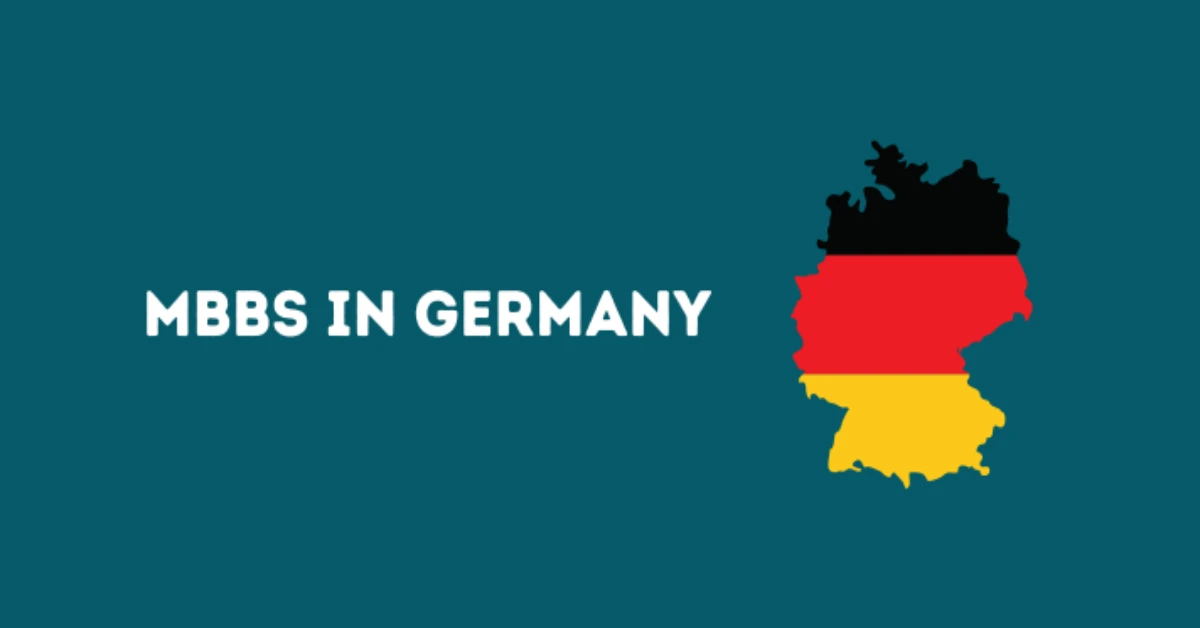Germany is undoubtedly one of the top destinations for Indian students pursuing an MBBS degree. Medicine is a continually expanding field, and many Indian students aspire to study MBBS in Germany. The country offers excellent and affordable education options for international students. Numerous top NMC-approved medical universities are located in Germany, making it an attractive choice for aspiring medical professionals.
Some of the world’s leading organizations, such as the WHO and NMC, recognize medical universities in Germany. Several German medical universities offer free education to international students. For candidates pursuing medical degrees, Germany is an ideal destination for MBBS. This article provides information about the country, eligibility criteria, required documents, the MBBS syllabus in Germany, top colleges for MBBS in Germany, and more.
[Index]
Country Summary
Germany, officially known as the Federal Republic of Germany, is considered the heart of Europe and is the sixth-largest country on the continent. In the mid-19th century, Germany was comprised of 1,000 small states and 350 principalities.
| Population | 84,607,016 |
| Area | 357,600 km2 (138,100 sq mi) |
| Capital City | Berlin |
| Language | German |
| Climate | temperate and marine |
| Literacy Rate | 99% |
| Time Zone | UTC+1 (CET) UTC+2 (CEST) |
| Currency | Euro (€) (EUR) |
| Religion | Roman Catholic (29.9%) or Protestant (29.8%), although 1.3% of the population are also Orthodox Christians. |
Quick facts
Before diving into the complete information about pursuing an MBBS in Germany for Indian students, let’s review some quick facts.
| Course Offered | Bachelor of Medicine and Bachelor of Surgery (MBBS) |
| Course Duration | 5+1 Year of Internship |
| Basic Eligibility | 10+2 (PCB) with 60% |
| Medium of Teaching | English & German |
| Universities Recognition | NMC & WHO accredited |
| Cost of Living in Germany | Rs.15,000-20,000/Per month |
| Minimum Course Fees | Rs.5,000,00/- Lakhs/Year |
| Entrance Exam | NEET (Qualified Only) |
| IELTS & TOEFL | Required |
Recognition
When choosing the best medical colleges for an MBBS in Germany, it’s crucial to check their affiliations, recognitions, and other accrediting parameters. Medical colleges in Germany are affiliated with the following authorities.
- Ministry of Education, Germany.
- NMC (National Medical Commission)
- WHO (World Health Organization)
- ECFMG (Educational Commission for Foreign Medical Graduates)
- WFME (World Federation for Medical Education)
- FAIMER (The Foundation for Advancement of International Medical Education and Research)
Is MBBS in Germany safe for Indian students?
- High Safety Standards: Germany is known for its stringent safety regulations and low crime rates.
- Welcoming Environment: German universities are known for their inclusive and supportive communities.
- Quality Healthcare: Access to excellent healthcare facilities for students.
- Robust Legal System: A strong legal framework ensures protection and fairness.
- Student Support Services: Universities provide dedicated support services for international students.
- Cultural Sensitivity: Exposure to diverse cultures with an emphasis on tolerance and respect.
- Safe Accommodation: Availability of secure housing options for students.
- Efficient Public Transport: Reliable and safe public transportation systems.
- Emergency Services: Well-established emergency services accessible to all students.
- Strong Indian Community: The presence of a significant Indian student community offering support and a sense of familiarity.
Admission Procedure 2025-26
If you want to be admitted to Germany, you must qualify for the National Eligibility Entrance Exam (NEET) for Indian Students.
Eligibility Criteria 2025-26
Germany has been one of the top preferred destinations for Indian and international students to pursue their Medical Degree Courses. If you want to study MBBS in Germany in 2025-26, check the eligibility criteria below.
| Particular | Description |
|---|---|
| Age | Your age should be at least 17 years on or before 31st December of the admission year. No Upper Age Limit. |
| Qualification | Admission Seekers should complete their Higher Secondary Education with a minimum 50% mark covering Physics, Chemistry and Biology streams. |
| Minimum Qualifying (%) | 50% in 10+2 |
| Qualifying Entrance | NEET (For Indian Students) |
Documents Required
Before admission to Medical Colleges in Germany, please do not forget to carry all these related documents.
- Passport (Minimum 18 months validity).
- Class 10th Certificate & Mark sheet.
- Class 12th Certificate & Mark sheet.
- Birth Certificate.
- Ten passport-size Photographs
- 10 Photocopies of the school leaving certificate
- Official Invitation letter from the Medical University of Germany.
- Legalization of all documents from the German Embassy.
- Valid Travel Passport
- Bank receipt of University 1st year Tuition fees (required for some Universities).
- Medical Fitness Certificate (By hospital with stamp)
- HIV Test Documents
MBBS Syllabus
Before embarking on medical studies in Germany, it’s essential to compare the MBBS syllabi of some of the country’s top-ranked, NMC-approved medical universities.
| 1st year | Gross Anatomy, Physiology, Biophysics, Biochemistry, Medical Mathematics, Foreign Language |
| 2nd year | Genetical and Topographical Anatomy, Virology, Parasitology, Histology, Genetics, Physiology, Foreign Language, Medical Psychology |
| 3rd year | Pathophysiology, Immunology, Pharmacology, Medical and Surgical Semiology, Sanogenetic Education |
| 4th year | Radiology, Surgery, Traditional Medicine, Urology, Hygiene, Traumatology, Internal Medicine, Pharmacology, Child Abuse |
| 5th year | Internal Medicine, Neurology, Pediatrics, Endocrinology, ENT, Ophthalmology, Oncology, Clinical Genetics, Infantile Surgery |
| 6th year | Obstetrics and Gynecology, Dermatology, Psychiatry, Epidemiology, Polyclinics, Infectious Diseases, Public Health, Forensic Medicines, History of Medicine, Family Planning |
Top MBBS College in Germany
The Medical Council of India has officially released the updated list of all Medical or MBBS Colleges in Germany for 2025-26. For detailed information on fees, courses offered, admissions, placement statistics, cut-offs, facilities, and complete college reviews, click on the respective college links.
| S.No. | Name of Colleges |
|---|---|
| 1 | Humboldt University |
| 2 | Philipps-University Marburg |
| 3 | University Heidelburg |
Advantages and Disadvantages
Germany attracts many international students and offers excellent vocational training opportunities. Here are some advantages of studying MBBS in Germany:
Advantages of studying MBBS in Germany
- Wide range of possibilities and broad exposure to clinical practice due to highly equipped multi-profile hospitals.
- The tuition fee is quite low and affordable.
- Elite bodies like the WHO and NMC acknowledge medical colleges in Germany.
- The cost of living for students is relatively low too.
- German MBBS courses follow the mode of the English language.
Disadvantages of studying MBBS in Germany
- As German is the local language in Germany, students might feel the language is a barrier (outside the university campus).
- One might have to put extra effort into learning the German Language after the class hour.
- The visa process for Germany could be callous as it can take more than two months after document submission to the concerned embassy.
- The country’s climate is usually cold, so it might be hard for students to adapt.
- Those who wish to study and work together to cover their expenses may face difficulties because it requires a lot of self-study and concentration.

